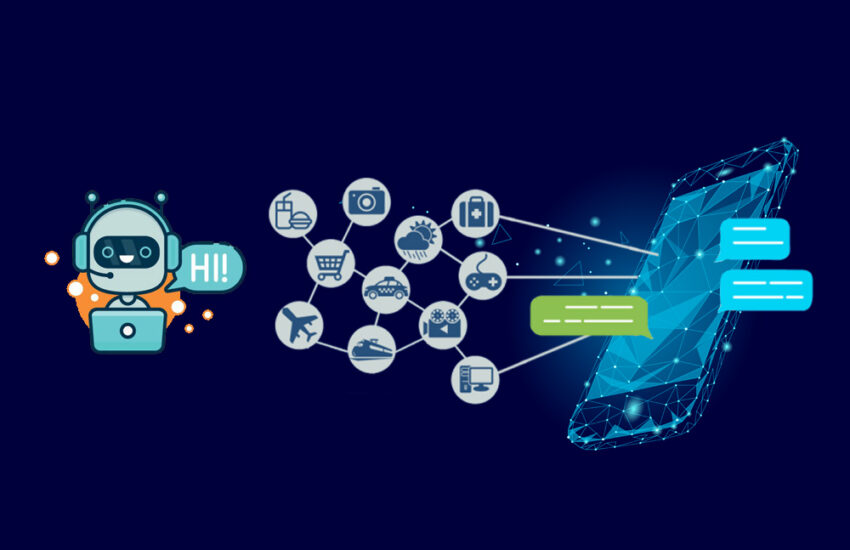
Imagine walking into a store and trying to find a specific product, but none of the employees seem to be available to help you. Frustrating, right? This is a common experience for customers seeking support from businesses. However, with advancements in technology, businesses are now able to provide instant support to their customers through the use of NLP-powered chatbots. In this blog post, we will explore how these chatbots are revolutionizing customer support and why they are essential for businesses today.
- What are NLP-powered Chatbots?
NLP-powered chatbots are computer programs that use artificial intelligence (AI) and machine learning (ML) to understand and respond to human language. These chatbots are designed to simulate human conversation and can assist customers with a wide range of inquiries, including product information, billing inquiries, and technical support. NLP-powered chatbots utilize the best AI prompts to provide accurate and personalized responses to customers, ensuring a seamless and satisfactory customer experience.
- Why are NLP-powered Chatbots Essential for Businesses?
The modern customer demands instant gratification, and waiting on hold for hours is no longer acceptable. NLP-powered chatbots provide customers with immediate access to support, ensuring that their inquiries are addressed in a timely manner. This not only improves customer satisfaction but also saves businesses time and money by reducing the need for human support agents.
- Benefits of NLP-powered Chatbots for Businesses
NLP-powered chatbots provide numerous benefits to businesses, including:
- Improved Customer Satisfaction: NLP-powered chatbots can provide 24/7 support, ensuring that customers receive prompt and accurate responses to their queries, leading to higher customer satisfaction.
- Cost-effective: By reducing the need for human support agents, businesses can save time and money. Chatbots can handle multiple inquiries simultaneously, making them more cost-effective than human agents.
- Personalization: NLP-powered chatbots can analyze customer data to provide personalized recommendations and responses, leading to higher customer engagement and loyalty.
- Increased Efficiency: Chatbots can handle a high volume of inquiries simultaneously, leading to faster response times and increased efficiency.
- Accurate Analytics: NLP-powered chatbots can collect and analyze data from customer inquiries, providing valuable insights into customer behavior and preferences.
- Challenges of Implementing NLP-powered Chatbots
While NLP-powered chatbots provide numerous benefits to businesses, their implementation can be challenging. The following are some of the challenges that businesses face when implementing chatbots:
- Integration with Existing Systems: Chatbots need to be integrated with existing business systems to provide accurate and personalized responses to customers. This requires significant development time and resources.
- Maintaining Customer Trust: Customers may be hesitant to interact with chatbots due to concerns about data privacy and security. It is essential for businesses to establish trust with their customers and ensure that their data is protected.
- Training: Chatbots require training data to understand customer inquiries accurately. This data needs to be regularly updated to ensure that chatbots provide accurate responses.
- Examples of Successful NLP-powered Chatbots
Many businesses have successfully implemented NLP-powered chatbots to improve customer support. For example, Bank of America’s virtual assistant, Erica, helps customers manage their finances through a conversational interface. Another example is H&M’s chatbot, which helps customers find the perfect outfit based on their preferences.
- How to Implement NLP-powered Chatbots in Your Business
Implementing NLP-powered chatbots requires careful planning and execution. The following are the steps to follow to successfully implement chatbots in your business:
- Identify the purpose of the chatbot and the types of inquiries it will handle
- Choose the right platform for your chatbot based on your business needs and budget.
- Determine the integration requirements with your existing systems and identify any potential issues.
- Create a chatbot persona and train it using relevant data.
- Test the chatbot extensively to ensure that it provides accurate and personalized responses to customer inquiries.
- Monitor the chatbot’s performance and collect customer feedback to identify areas for improvement.
- Future of NLP-powered Chatbots
The future of NLP-powered chatbots is exciting, with advancements in AI and ML leading to even more sophisticated chatbots. In the future, chatbots will become even more personalized, providing tailored recommendations to customers based on their preferences and behavior. Additionally, chatbots will be able to handle more complex inquiries, including customer service issues that require empathy and emotional intelligence.
- Conclusion
NLP-powered chatbots are transforming customer support, providing businesses with a cost-effective, efficient, and personalized solution to customer inquiries. While implementing chatbots can be challenging, the benefits they provide make them essential for businesses today. With the right implementation strategy and ongoing monitoring and feedback, businesses can successfully integrate chatbots into their customer support processes, leading to higher customer satisfaction and increased efficiency. As businesses continue to invest in AI and ML technologies, the future of NLP-powered chatbots looks bright, with even more sophisticated and personalized chatbots on the horizon.
Tech World Times (TWT), a global collective focusing on the latest tech news and trends in blockchain, Fintech, Development & Testing, AI and Startups. If you are looking for the guest post then contact at techworldtimes@gmail.com

